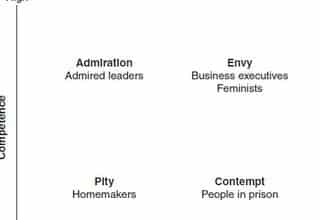Once again, it’s the end of the year. A time to reflect on all we’ve accomplished… then, feel inadequate and vow to do better next year. This typically involves some grand resolution that will begin on January 1st. I’ve written about my cynical outlook regarding New Year’s Resolutions; however, if you’re ambitious and need a jumpstart, there are worse ways to expend your efforts.
Recent research compared people who set ambitious goals to those who set more conservative goals. The study found that those with bold goals are happier in the “long run.” They attribute this to the result—if you set a conservative goal, you get a conservative outcome; whereas an ambitious goal has a substantial outcome.
The moral of the story is don’t sell yourself short. Aim high.—Cecile K. Cho, Assistant Professor of Management and Marketing
There’s a caveat to the “ambitious goal = happiness” theory. In order to achieve this happiness, you need to achieve your ambitious goal. Otherwise, all you did was set yourself up for failure, which is demoralizing and will negatively affect your chances of creating future ambitious goals. Thankfully, there is a solution, and it may not be what you think.
Whenever we talk about resolutions and goals, the importance of self-control is often stressed. There is pressure to muster the willpower to stay on task, persevere through the hard times, and ultimately win. But what if there was more to it than self-control?
A study in Social Psychological and Personality Science found that individuals who experience fewer temptations make more progress toward their goals than those who concentrate on flexing their willpower. In practice, avoiding temptation means ducking the candy machine when you’re hungry, or turning off your phone notifications when you need to focus. The idea is to not exert any mental energy into resisting your prior bad habits.
The connection between temptations and goal attainment can be explained by emotional exhaustion. People who experience the most temptations report feeling mentally depleted. And this mental depletion is linked to a gradual diminishing of self-control until goal success is nil.
Don’t be part of the 92% of the population who give up on their resolutions before the end of the first month. Self-improvement begins with setting ambitious goals so you can make big things happen. Then resist the temptations that are trying to take you off course. If it works, happiness and a sense of self-satisfaction awaits. If not, there’s always next year.








